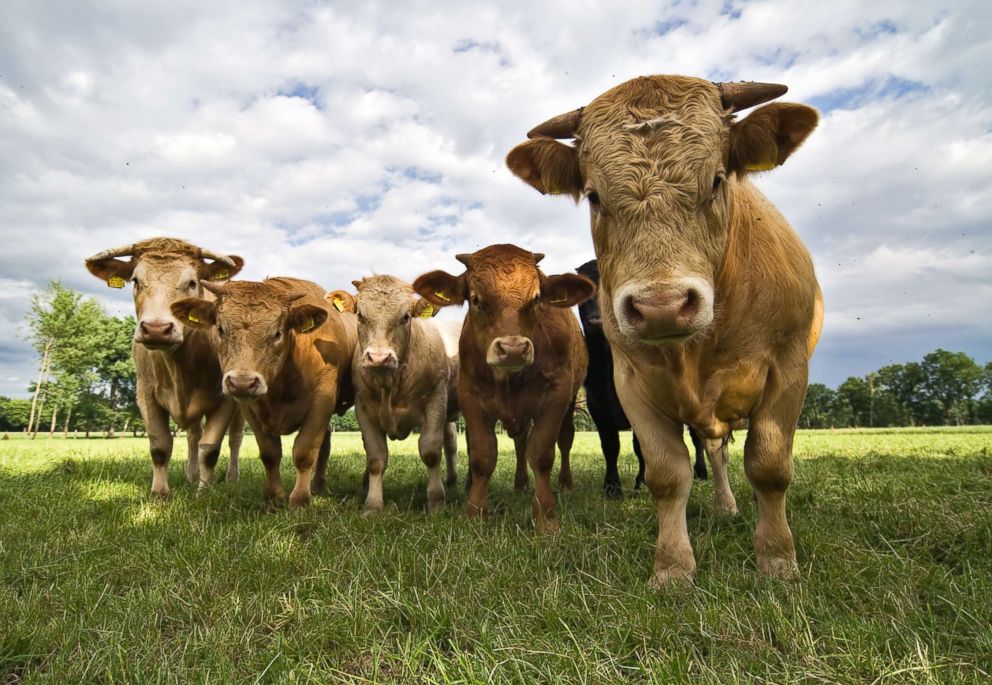
A diet heavy on whole grains and plants won’t only benefit human health, it’ll benefit the planet too, according to a report published this week by a commission of dozens of experts from 16 countries.
The report, published in The Lancet, attempted to determine the optimal diet for both humans and the earth, and found that if people around the globe followed a plant-based diet, it would save over 10 million lives — preventing 20 percent of adult deaths per year.
“We [asked], ‘What kind of diet do we need to optimize human health?’ and, ‘What are the limits that the earth can actually tolerate?” Dr. Brent Loken, co-author of the report and a conservation scientist, told ABC News. “Some reports look at it differently, like what [level] greenhouse gases need to [reach] and then work backwards.”
After reviewing numerous studies, the commission recommended a diet high in vegetables and grains and low in meat, fat and oils. It laid out specific amounts in quantity and calories for people ages 2 to adulthood.
The study was based on a 2,500-calorie diet, the recommended caloric intake for a sedentary to moderately active adult male (moderately active women should consume about 2,000 calories per day). The researchers recommended that this diet include about 600 grams of vegetables per day, which comes out to about 4 cups of broccoli; about 200 grams of whole grains per day, which is equal to about 1 cup of dry brown rice or 4 cups cooked; and about 200 grams of cooked black beans, which is nearly 4 cups. Replacing a quarter-pound of ground beef for a plant-based option would also allow for another 5 cups of cooked lentils. Altogether, this diet would still allow for other foods, including starchy vegetables, fruits, nuts and some oils and sweeteners.
“It’s possible to feed every single person, not just calories, but a healthy diet,” without having a negative impact on the environment, Loken said.
Dietary patterns impact the environment.
The commission took into account planetary thresholds on carbon emissions and food sustainability based on guidelines from international panels and the Paris Agreement to offer strategies for food system change. Loken told ABC News that the group took into account several variables, including greenhouse gas emissions, the loss of biodiversity, and land and water use.
With Americans consuming 26.5 billion pounds of beef in 2017, several reports have tried to apply these same variables to estimate the environmental impact of a quarter-pound hamburger. One report, using numbers from a study on the environmental impact of beef production, estimated that one burger required 14.6 gallons of water, 13.5 pounds of feed, and 64.5 square feet of land to produce. Additionally, they led 0.13 pounds of methane and 4 pounds of carbon dioxide to be released into the environment.
The Environmental Working Group estimated that the carbon footprint of broccoli is nearly 13 times less than beef, and a clinical trial showed that eating it may even help to rid your body of cancer-associated pollutants.

The commission concluded that if we all ate a plant-based, whole foods diet by 2050, it “would not only benefit us individually, but would allow the growing world population to be fed… and the planet to be protected,” Dr. Francesco Branca, study co-author and director of the Department of Nutrition for Health and Development at the World Health Organization, told ABC News.
The report also said that other serious changes would need to be made by 2050, including improvements in soil conservation environmental regulations and food waste reduction. It also noted that we would need to increase crop yields while at the same time avoiding an increase in land use — agriculture currently uses 40 percent of the world’s land.
Eating red and processed meat is unhealthy for you and the planet.
People who eat a lot of meat have an increased risk for all causes of death, disease and causing environmental harm. It also cited a lack of evidence that red meat is a nutritional necessity. In one of the studies the report cited, vegans had a 12 percent lower risk of death.
“A global shift to a plant-based diet is a win-win for both human health and the environment,” Dr. Neal Barnard, president of the Physicians Committee for Responsible Medicine, told ABC News. “Animal products are not only major drivers of our planet’s top killers — like heart disease and obesity — but they’re also major drivers of what’s killing the planet itself: climate change, land use, water use, and air and water pollution.”
Every Person’s effort can make a serious change.
If you are ready to try an environmentally and heart healthy transition to a mostly plant-based diet, Barnard and his colleagues recently launched the free 21-Day Vegan Kickstart app. Physicians and medical centers, such as NYC Health and Bellevue Hospital and the Barnard Medical Center are also beginning to incorporate plant-based nutrition and lifestyle medicine practice into clinical care. You can also ease into the transition by going meatless just one day a week.
“With food you have the absolute power to make an impact,” Loken said. “It’s probably the number one thing a person could do to make an impact today.”
Dr. Robin Ortiz is a physician in internal medicine and pediatrics and a member of the ABC News Medical Unit.
Source: Read Full Article